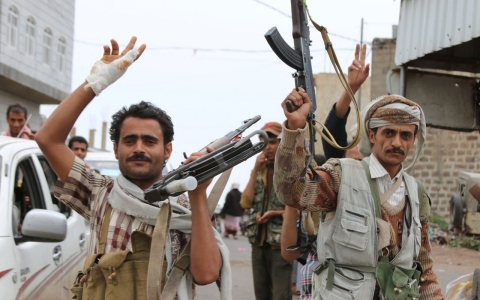 UNICEF representative in Yemen, Mertixell Relano, has warned that the future of the country’s next generation is bleak because many of them are being deprived of education. Around 4,5million children may not have finish the school year because around 75% of the country’s teaching force has gone unpaid since October 2016. The struggle to pay the salaries of the teachers began when the Hadi-led government based in Aden decided to move the central bank from the capital which is under the control of the Houthi Movement and their allies.
UNICEF representative in Yemen, Mertixell Relano, has warned that the future of the country’s next generation is bleak because many of them are being deprived of education. Around 4,5million children may not have finish the school year because around 75% of the country’s teaching force has gone unpaid since October 2016. The struggle to pay the salaries of the teachers began when the Hadi-led government based in Aden decided to move the central bank from the capital which is under the control of the Houthi Movement and their allies.
Speaking in Sana’a at a press conference, Relano pointed out that the children that are not going to school face the “risk of being recruited (for military service), or the girls might be at risk of being married earlier.” The government claims that it is trying to end the seven month ordeal but alleges that the rebels are obstructing the transfers. It also claimed that the rebels looted the central bank. The Houthi Movement strongly denies all the allegations.
There have been serious concerns over the living conditions of the civilian population in Yemen and there are fears that there will not be enough food by the end of August. Magne Barth, head of the delegation of the International Committee of the Red Cross in Moscow highlighted that the high cost of food makes them unaffordable to the ordinary person.
Similar concerns have also been raised by the UN Office for the Coordination of Humanitarian Affairs. Around 19 million people are acutely affected and need some form of immediate humanitarian assistance and more than $2.1 billion is needed to provide life-saving assistance to 12 million Yemenis as the 2017 Yemen Response Plan was only 14.4% funded, according to its last week’s bulletin.
Warring parties in Yemen have failed to make progress towards peace or agreeing on a ceasefire amid numerous warnings that the continuation of hostilities further makes the situation of the improvised country and its population much more critical.
Yemen’s future in jeopardy, international organizations warn
